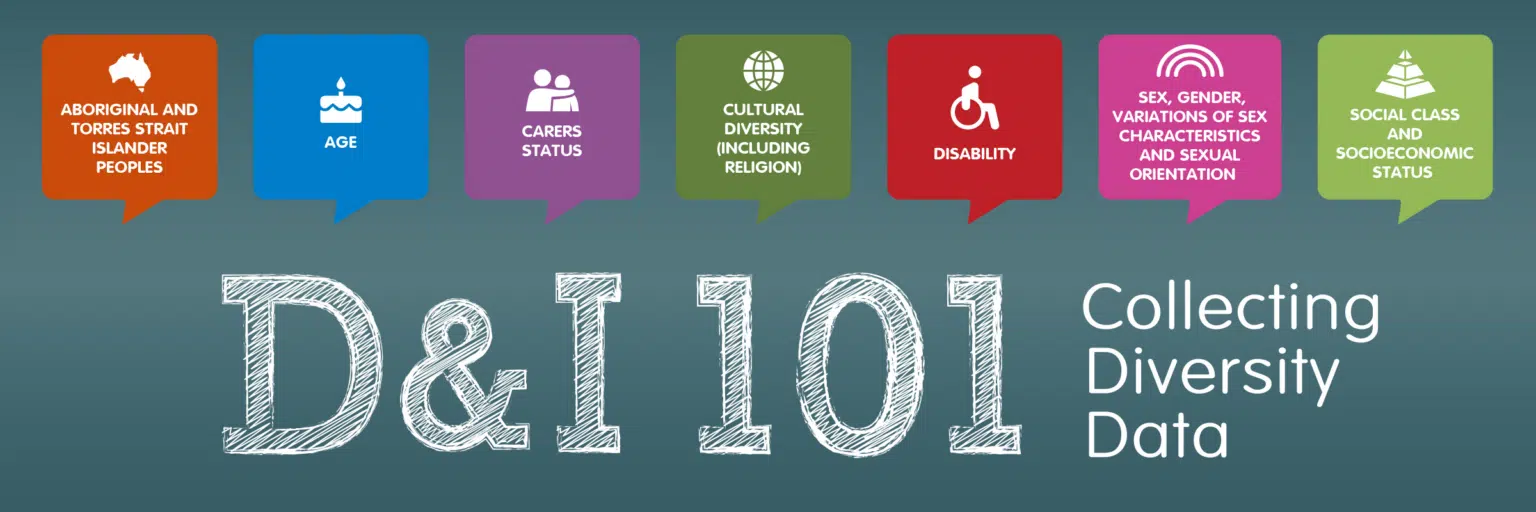
Understanding the mix of employees in your organisation
Diversity data is a powerful tool for understanding the mix of employees in your organisation, and can help you make informed decisions about the future direction and aspirations of your diversity and inclusion (D&I) initiatives and overall business strategies.
Whether you are looking at collecting diversity data from scratch, or updating your existing data, DCAs updated D&I 101: Collecting Diversity Data guide outlines the leading principles for undertaking respectful and inclusive diversity data collection in order to obtain genuine, meaningful data.
Planning the diversity data collection process helps ensure data is accurate, timely and effective in supporting your organisations D&I and broader business strategy.
Without consideration of a number of key factors, data collection can run the risk of alienating or excluding employees, capturing inaccurate or irrelevant information, and/or having findings overlooked and under-utilised.
This resource covers how to get your staff to support and participate in the data collection process, confidentiality and administrative matters as well as the reporting and benchmarking of findings. It also features a number of sample survey questions under each of the following areas:
- Aboriginal and/or Torres Strait Islander Peoples
Respecting that people may be cautious about answering questions on their Aboriginal and/or Torres Strait Islander status is important when collecting demographic information. - Age
Collecting data to assist with planning and targeting initiatives for particular age groups can have a significant impact on attraction, engagement and retention outcomes. - Carer status
Many people in full and part-time work provide much unpaid care and support to family members and friends who have a disability, mental illness, chronic condition, terminal illness, an alcohol or other drug issue or who are frail aged. To support them you need to understand the situation. - Cultural diversity (including religion)
Australian workers can find it difficult to specify just one cultural identity, ancestry, ethnicity, or cultural background so survey questions can become quite complex. - Disability
Capturing information about your employees disability status can support workplace adjustments, and much more, but employees can be reluctant to reveal this information. - Gender identity, sexual orientation and intersex variations
Language is particularly important when surveying staff about gender identity, sexual orientation and intersex variations. - Social class
DCA research has found social class to be one of the strongest factors influencing employee experiences of inclusion and exclusion at work.
Want to Use Our Research?
DCA encourages Members to access and utilise our research and come under our Terms of Use and Privacy Statement.
Where you wish to refer to our research publicly, it must be correctly attributed to DCA.
- Formal attribution to DCA is required where references to DCA research material are in a written format.
- Citing DCA as a source will suffice where the reference is made in a verbal format.
Notwithstanding, Members must not provide links or detailed information about Member-Only information.
The suggested citation for this report is:
Diversity Council Australia, D&I 101: Collecting Diversity Data, Sydney, Diversity Council Australia, 2022.
For more information on use of Members Only Content and Copyright, please see our Membership Terms and Conditions.
Member-only content
Gain full access with DCA membership!
If your organisation has just signed up, your access will be activated as soon as payment is received.
